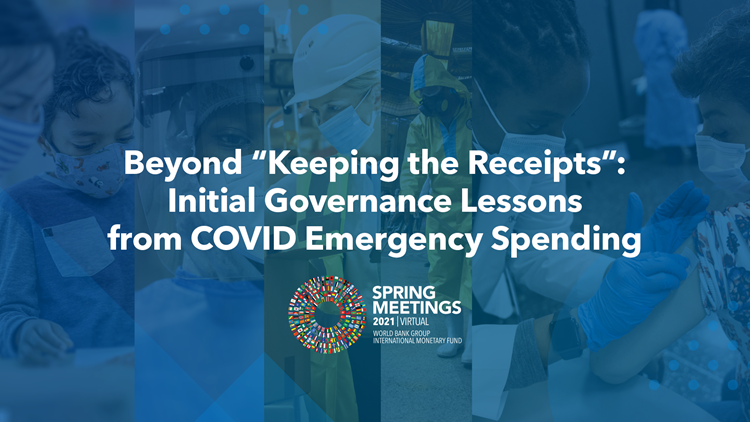Beyond Keeping the Receipts: Initial Governance Lessons from COVID Emergency Financing
April 12, 2021
From early on in the pandemic, the IMF’s advice to its members has been, “spend what you need, but keep the receipts.” With support from the Fund, countries have responded to the COVID emergency with a range of programs to address health, social, and economic impacts. Strengthened transparency and accountability arrangements were rapidly put in place, even as countries introduced innovations to enable expedited spending and delivery of services while confronting the pandemic. From early on in the pandemic, the IMF’s advice to its members has been, “spend what you need, but keep the receipts.”
The receipts are now coming in—information is now available on how money has been utilized, revealing binding governance constraints on effective public spending and service delivery and which innovations have proven to boost effectiveness. As this process gains speed, government officials will be challenged to learn from the positive adaptations that emerged out of the pandemic and find ways to harness heightened concerns for accountability in their drive to implement reforms that have often been discussed but remain sidelined.
The event is an opportunity for government officials and civil society representatives to discuss what they have learned about the recent experience with emergency spending, and how these lessons will inform and help shape longer-term efforts to strengthen governance, integrity, and public sector outcomes.
Join us on Monday, April 12 at 11:00 AM ET.
Opening Remarks:
Geoffrey Okamoto, First Deputy Managing Director, IMF
Speakers:
Rhoda Weeks-Brown, General Counsel & Director, Legal Department, IMF (Moderator)
Sawsan Gharaibeh, Co-Founder, Rasheed (Transparency International – Jordan)
Ghizaal Haress, Ombudsperson, Islamic Republic of Afghanistan
Dondo Mogajane, Director-General, National Treasury, South Africa
Katherine Siggerud, Chief Operating Officer, U.S. Government Accountability Office





 Minouche Shafik is the Director of the London School of Economics. Prior to this, she has previously worked in senior positions at the World Bank, the Department for International Development, and the IMF before becoming Deputy Governor of the Bank of England in 2014. She was made a Dame Commander of the British Empire in the Queen's New Year's Honours list in 2015.
Minouche Shafik is the Director of the London School of Economics. Prior to this, she has previously worked in senior positions at the World Bank, the Department for International Development, and the IMF before becoming Deputy Governor of the Bank of England in 2014. She was made a Dame Commander of the British Empire in the Queen's New Year's Honours list in 2015.